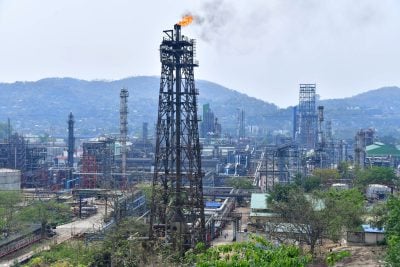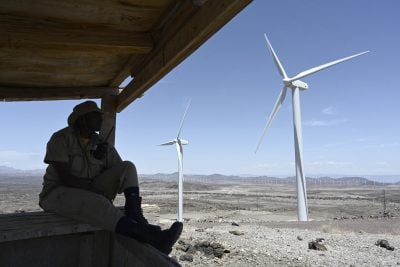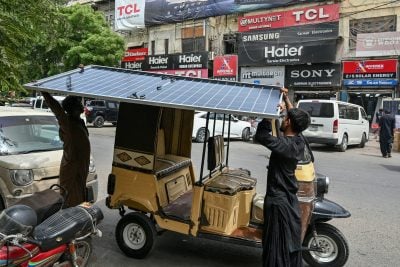Mozambique is one the verge of a massive gas boom that will completely transform its revenue stream. But the pertinent question is how to translate this energy windfall into meaningful jobs and better incomes for the majority of the population. Sara Menker* argues that the country’s most pressing priority must be to upgrade its education and training system if the windfall is to become a resource blessing rather than the oft-cited curse.
It is well documented that the top five oil and gas discoveries in 2012 were in sub-Saharan Africa, but few, perhaps realise that an incredible four out of the five major finds were in the warm waters off northern Mozambique.
Recent estimates suggest the country, once synonymous with communism, civil war and natural disasters, is currently sitting on 170 TCF (trillion cubic feet) of natural gas. This would make its reserves the fourth largest in the world. While Mozambique is already producing gas onshore at its Pande and Temane fields in the south, the nature and scale of its most recent offshore finds is in an entirely different league.
With a GDP of $12.75bn, the Southern African nation is about to have a staggering $20bn spent on one project alone over the next five years. By all accounts, it should be a transformative economic windfall for a country that is a jumble of statistical contradictions.
As I write this, Mozambique boasts one of the highest real GDP growth rates in the world, yet still ranks 185th out of the 187 countries on the 2013 UN Human Development Index. The bitter truth is that its incipient economic boom remains out of reach and out of mind for the vast majority of its 24m citizens. This is the part where most articles would descend into a discussion of the failures of Nigeria, the DRC, et al, in capturing the vast potential of their resource wealth. Indeed, repeating the all-too-familiar incantations of the African resource “curse” seems to have become a requisite ritual in all conversations about the continent’s raw materials.
Yet I want to explore another narrative. One that is solutions-based. I want to explore what Mozambique can do in the next five to 10 years to most effectively domesticate its incredible unfolding economic boom.
As I see it in 2013, we should be looking at Mozambique in ambitious future terms – assessing how we can create a “resource” dividend within the decade, rather than unrealistically trying to identify how the natural gas windfall will make an immediate difference to people’s lives.
Education at the heart and soul
At the heart and soul of this dividend must be education, skills development and job creation. Abundant natural resources should mean jobs. Yet the truth is Africa is not creating enough jobs to absorb the 10m to 12m young people entering its labour markets each year.
After almost two decades of sustained growth, the continent may be attracting increasingly lavish praise from aid agencies, investors and journalists alike but, according to the African Development Bank, less than one fifth of Africa’s young workers find waged employment.
In some rural areas of Mozambique, youth unemployment is as high as 70%. It is partially true that foreign energy firms entering the country can play an integral part in job creation – helping the country move away from being ‘potentially rich’ to fully exploiting the nation’s resources but what is most important is not looking to outsiders for solutions. Instead we must create them domestically.
Of course the first step to a successful energy sector is building credible domestic institutions that safeguard the economic interests of Mozambique’s people through transparent governance. But beyond these core foundations, in order to ensure that growth from its recent large natural gas reserves is inclusive, Mozambique must act now in adopting policies that will ensure operators employ locals and procure services domestically.
Providing the education, training and jobs necessary to exploit the nation’s ‘youth dividend’ must be integral to Mozambique’s economic planning. Youth, not gas or oil, is the continent’s biggest resource. About 65% of the total population of Africa is younger than 35, and over 35% are between the ages of 15 and 35 – making it the most youthful continent.
Amidst its energy windfall, Mozambique matters more than many other nations because its youth have the most to win. But in the highly competitive and technical energy sector, this can only happen if the quality of domestically available human resources and goods are sufficient.
In order to ensure that there isn’t a skills shortage, the Mozambican government must immediately begin heavy investment in education, vocational programmes and high-end technical training, working to reverse the current education crisis in the country and create an empowered and educated youthful population capable of filling even the most highly skilled engineering and research jobs that the natural gas industry will require.
At the moment this is more of an ideal than a prospective reality. Today only 15% of the total of secondary level students in the country participate in formal technical and vocational education and training courses each year. Of those that attend vocational schools, the failure rate is an alarming 50%, due to unqualified teachers, outdated facilities, and a shortage of study materials.
Solutions at hand
Your next question could be just how does a nation that ranks 185th out of the 187 countries on the 2013 UN Human Development Index pay for this? The answer is much simpler than you might think.
While gas production has not yet begun, the Mozambican government is already reaping the rewards of the large discoveries by taxing asset sales.
For example, the sale of Cove Energy in 2011 brought about tax revenues of $175m and the recent sale of ENI’s partial assets to CNPC brought about tax revenues of $400m.
The dividend is already coming onshore. Videocon recently reached a $2.5bn sale deal to ONGC and Oil India, and Anadarko just agreed to sell a portion of its assets to ONGC for $2.64bn. Once the governments of Mozambique and India approve the two deals, Mozambique should get another $400m or so in tax revenues. What if a percentage of such asset sale tax revenues from the gas industry were allocated towards education and training? In my opinion this is the best ‘resource investment’ that the government can make today instead of waiting to see if the conversations around the creation of a sovereign wealth fund amount to anything. Sceptics might argue that the revenues should fund much-needed infrastructure to support the gas industry. While sound infrastructure is essential to the development of Mozambican natural resources, it can be, and largely is, funded by the private sector, unlike education.
After all, having roads and power plants without people to maintain and improve them ensures no end to the cycle of poverty and dependence. To this end, within any educational framework, we must also consider the nation’s many civil servants and employees of state-owned corporations, whose jobs have drastically changed as a result of the discoveries.
It has already been proven possible to emancipate a local population through a thriving energy sector. After much struggle, countries including Nigeria and Angola are now showing that a loose formula can be found to turn natural resources into wealth for ordinary citizens. In these nations, oil revenue has translated into improved infrastructure, better roads, railways, schools and hospitals, and salaries for the professionals in the energy sector despite across-the-board income disparities elsewhere.
Cultivating an employable population requires a strategic approach towards managing skills in the country. An outstanding example is what Brazil did through the creation of the PROMINP (Programa de Mobilização da Indústria Nacional de Petróleo e Gás Natural) initiative in 2003, which instilled a long-term education and vocational training strategy that included creating incentives and subsidies for the private sector to invest in vocational training alongside the government.
So in nations like Mozambique, we need both stable and visionary political leadership intent on turning the familiar narrative on its head and for stakeholders to start talking about ensuring a ‘Resource Blessing’ – using economic empowerment from the energy sector to create a new generation of educated young role models to inspire the next onto even greater things.
*Sara Menker is the founder and CEO of Gro Ventures. Before that, she was a vice-president in Morgan Stanley’s Commodities Group in the Fixed Income Division. She serves as Chair of the Board for Truth Aid and a Trustee of the Mandela Institute of Development Studies.
Want to continue reading? Subscribe today.
You've read all your free articles for this month! Subscribe now to enjoy full access to our content.
Digital Monthly
£8.00 / month
Receive full unlimited access to our articles, opinions, podcasts and more.
Digital Yearly
£70.00 / year
Our best value offer - save £26 and gain access to all of our digital content for an entire year!

 Sign in with Google
Sign in with Google 




